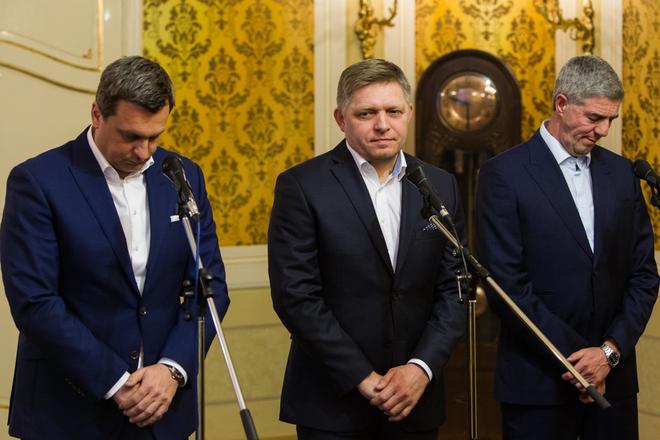Had a general election taken place in early November, it would have been won by the governing Smer party but with only 24.8 percent of the votes, garnering them 42 seats in parliament, a poll taken by the Focus agency published on November 29 shows.
The survey conducted on a sample of 1,017 respondents between November 7 and 13 further showed that the Freedom and Solidarity (SaS) party would have come second, as the preferred choice of 14.2 percent of respondents (24 seats), while another opposition party, OĽaNO-Nova, would have come third on 12.5 percent (21 seats), the TASR newswire cited the poll results.
Five more parties would have made it into parliament – the opposition Sme Rodina on 8.5 percent (14 seats), extreme right People’s Party Our Slovakia (ĽSNS) on 8.4 percent (14 seats), the minor coalition partner, Slovak National Party (SNS), on 8.0 percent (14 seats), the non-parliamentary Christian Democratic Movement (KDH) on 7.2 percent (12 seats) and the coalition party Most-Híd on 5.6 percent (9 seats).
All other parties would have failed to reach the 5-percent threshold required for seats in parliament.
A total of 68.1 percent of the respondents would have gone to the polling stations, according to the poll. Some 20 percent of the respondents would not have voted, while 11.9 percent would not have known whom to pick.
What trends does the Focus poll show
The recent poll confirmed the trend suggested by last week’s poll by the AKO agency: Smer received almost two percent less than last month, while the other two coalition parties fell in the vote, too. If the election took place in mid-November, the cabinet would garner a mere 65 parliamentary chairs, compared to the current 79, the Sme daily commented.
The extremist ĽSNS party recorded a drop, too: it was third in October and has now placed fifth. Only 14 of its members would get a seat in the House.
The opposition SaS party led by Richard Sulík – from which MP Martin Poliačik left only a few days before the poll – would have 24 chairs, thus coming second. The biggest jump was made by the OĽaNO opposition movement of Igor Matovič which improved by four percent which would have given them a total of 21 MPs.



 The ruling coalition (L-R: SNS-Andrej Danko, Smer-Robert Fico. Most-Híd-Béla Bugár). (source: Sme - Jozef Jakubčo)
The ruling coalition (L-R: SNS-Andrej Danko, Smer-Robert Fico. Most-Híd-Béla Bugár). (source: Sme - Jozef Jakubčo)